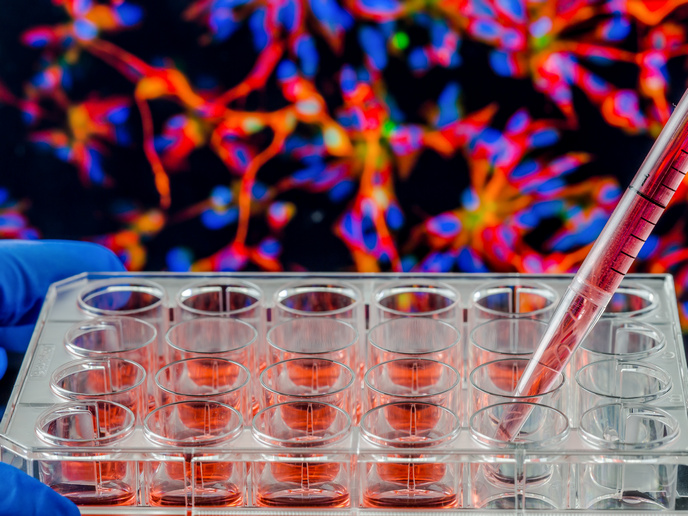A game-changing treatment for chronic inflammatory disorders
Juvenile idiopathic arthritis(opens in new window) (JIA) is diagnosed before the age of 16 and usually presents with stiffness, swelling and pain in one of the joints as a result of inflammation. JIA can inhibit the child’s growth and lead to disabilities. Existing treatments relieve symptoms and aim to reduce inflammation, preserving joint function and mobility.
A therapeutic antibody against chronic inflammatory diseases
The EU-funded Notid project supported the development of a novel biological treatment for JIA. Researchers had previously shown that patients suffering from rheumatoid arthritis exhibited increased levels of bile salt stimulated lipase(opens in new window) (BSSL), an enzyme secreted from the pancreas into the intestine for the digestion of fat and the absorption of cholesterol. Accumulating evidence indicates that BSSL is implicated in inflammation, while mice lacking BSSL(opens in new window) are protected from developing arthritis. “As soon as we discovered BSSL as a target molecule for the treatment of chronic inflammatory diseases, we investigated ways to inhibit BSSL activity,” explains Einar Pontén, project coordinator and CEO of LIPUM AB(opens in new window). Experimental studies led to the conclusion that a therapeutic antibody has the potential to provide the required specificity and efficacy without unreasonable side effects. Treatment of animals(opens in new window) with an antibody directed towards BSSL showed effective protection from disease development and progression without, however, affecting the entire immune system. Researchers tested a series of experimental antibodies and identified the nominated candidate drug SOL-116. Notid reached several major milestones towards the evaluation of the drug in clinical studies. The project team developed a number of tools, such as cell lines, that enabled the testing of candidate anti-BSSL antibodies. Following extensive optimisation of the formulation and production of SOL-116 in bioreactors, the process was scaled up, and a clinical grade drug will be manufactured under good manufacturing practices conditions. A patent application has been submitted and a clinical trial application for regulatory approval will be ready in spring 2022 to commence the clinical testing of SOL-116.
Towards in-man evaluation of SOL-116
JIA is a rare disease that can lead to joint destruction, and afflicted individuals often suffer from a deteriorating quality of life. As a result, JIA treatment presents with a high medical need and offers a significant market that urged Notid partners to focus on this paediatric disease. SOL-116 has the potential to become a game changer in the treatment of JIA and other chronic inflammatory diseases. “Drug development requires significant investment, and we plan to raise capital by an initial public offering and listing on the Nasdaq First North Growth Market(opens in new window) in Stockholm,” says Pontén. This will support the non-clinical toxicology and safety testing of SOL-116 as well as help initiate a Phase Ia clinical study on healthy volunteers in 2022. A Phase Ib trial on patients with rheumatoid arthritis will follow to evaluate bedside safety and clinical efficacy. In parallel, Notid partners are testing SOL-116 in other chronic inflammatory diseases and plan to establish additional collaborations for continued clinical evaluation and product development.







